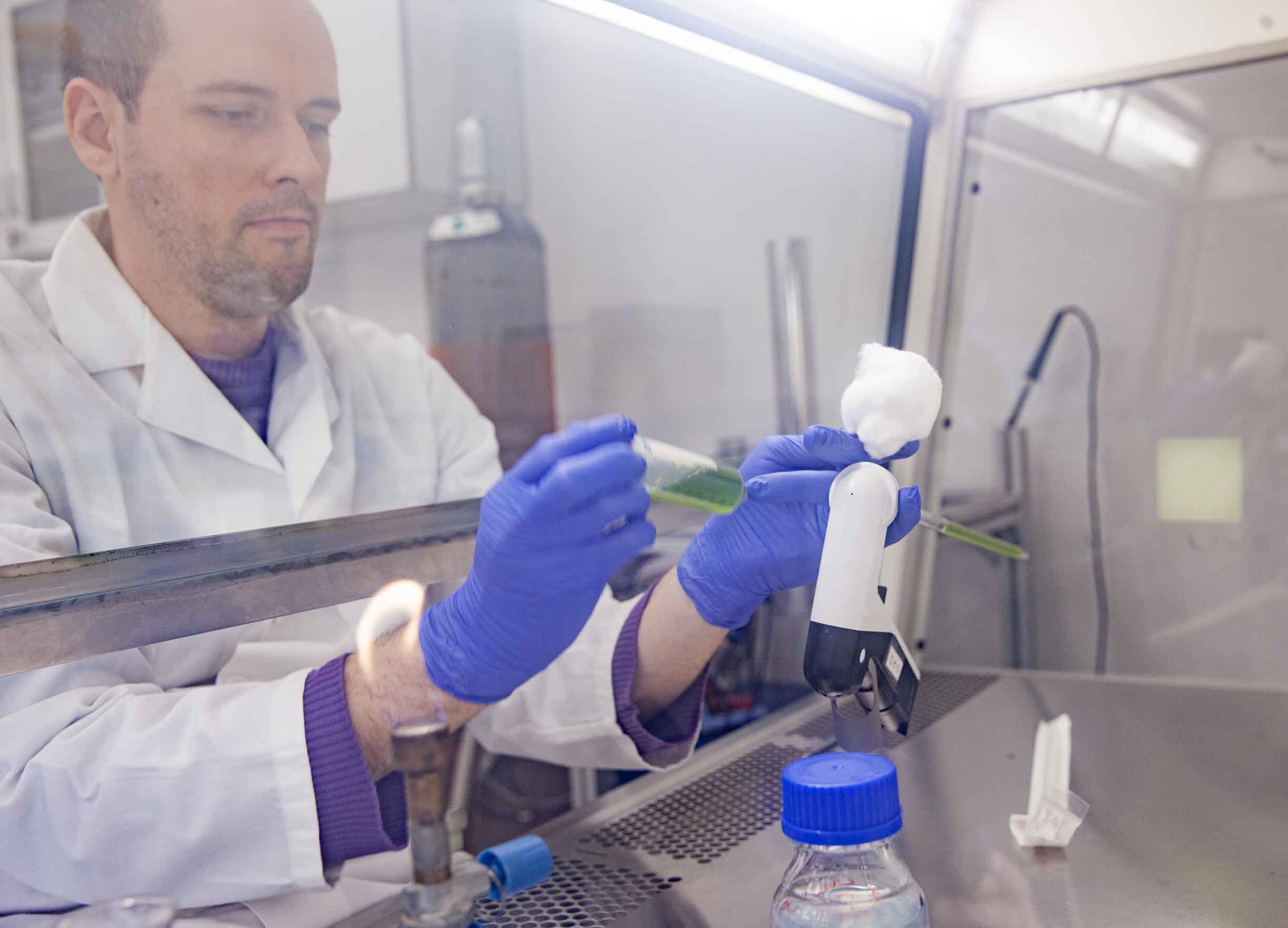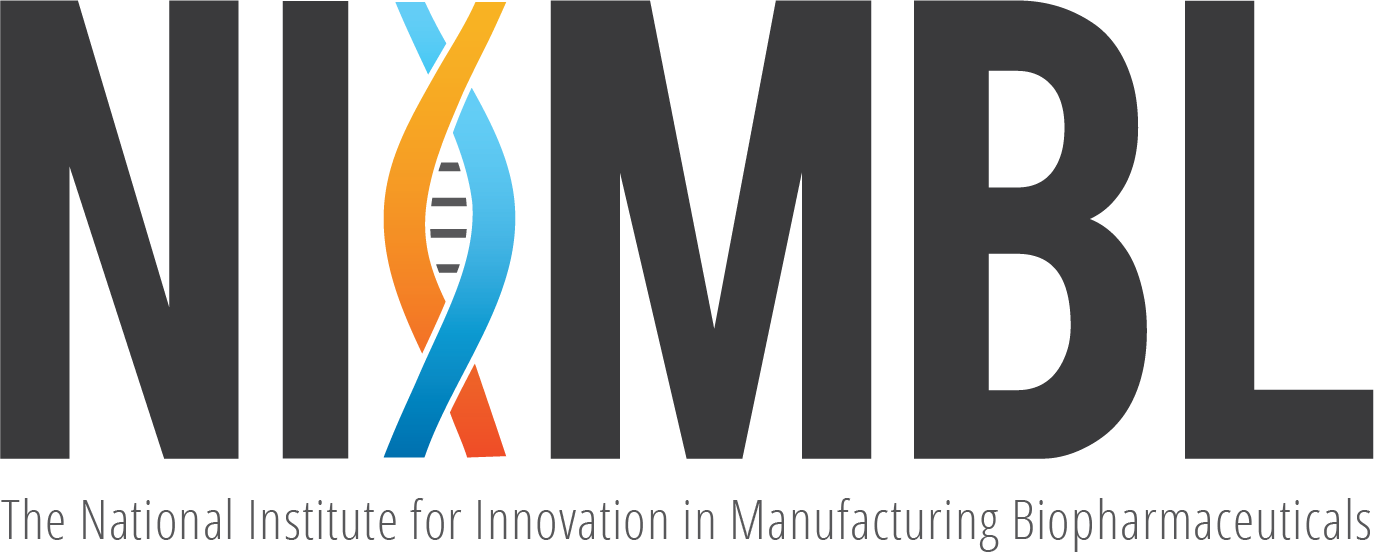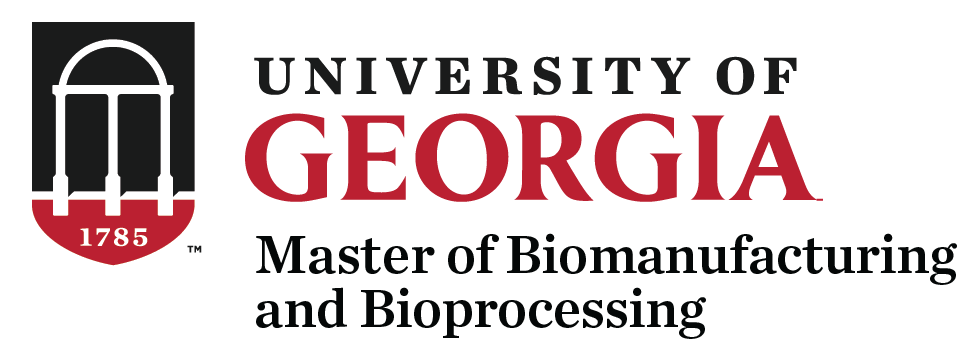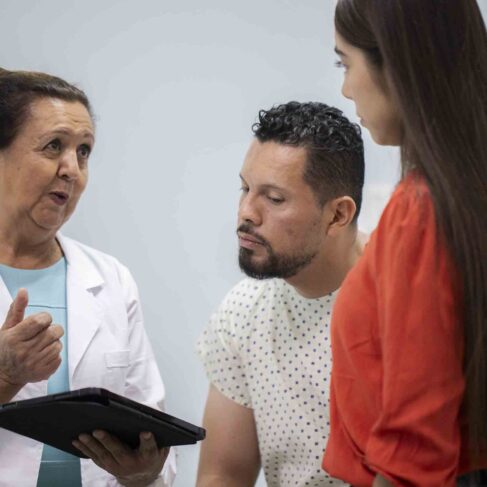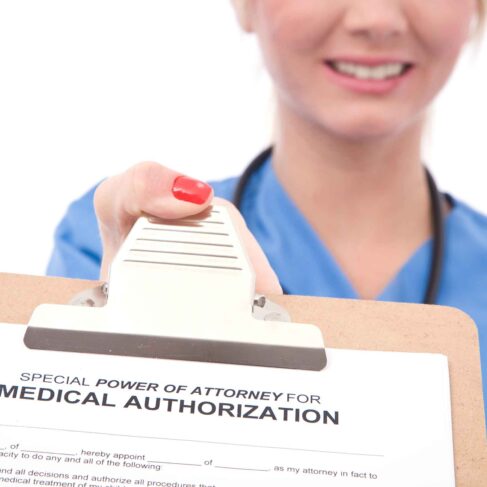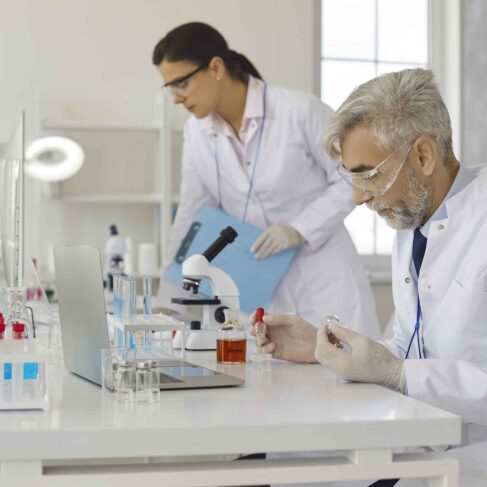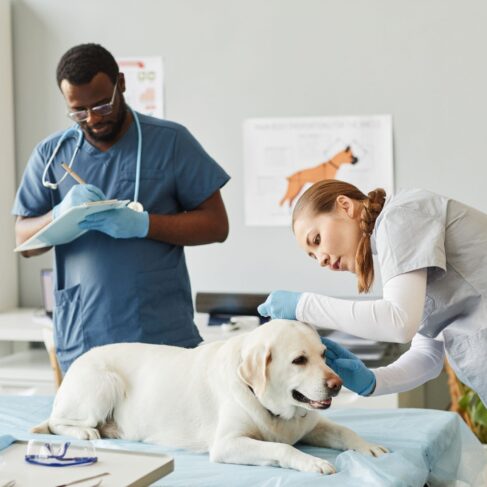Stay connected
Be the first to know about new programs, upcoming events, or other exciting opportunities happening at the University of Georgia by joining our mailing list.
About this course
What you’ll learn
Upon completion of this course, learners will be able to:
Understand basic concepts in upstream and downstream biomanufacturing including:
- Aseptic Technique
- Expression Systems
- Fermentor Operation
- Cell Lysis and filtration
- Chromatography
- Protein Analysis
- Cell culture and emerging technologies
Learning objectives
Module 1
- Recognize when aseptic technique is required
- Describe basics of airflow and HEPA filtration in BSCs
- Explain the difference between disinfectant and sanitizer
- Explain the main principles for proper aseptic technique: product contact surface and first air rule
- Demonstrate the ability to maintain sterility
- Judge the effectiveness of the technique or other worker’s technique
- Describe different types of media
- For mammalian cell culture, describe serum free versus serum-containing media
- Prepare media using written instructions
Module 2
- Describe the Lac operon system
- Design a strategy to express a protein using a lac operon containing plasmid
Module 3
- Define the growth rate formula
- Interpret rate based on supplied data
- Understand cell banks and their types
Module 4
- Identify parts of fermentor/bioreactor
- Apply knowledge to setup the system
- Explain how the parts fit with the overall process
- Describe the difference between microbial and mammalian cell processes
- Describe components needed for fermentation
- Explain what a control loop is
Module 5
- Compare and Contrast batch v. fed-batch
- Design a feed strategy
- Describe how a CIP and SIP systems works
- Distinguish between SIP and autoclavable systems
Module 6
- Understand Vaccine Technology
- Understand Gene Therapy
- Understand Antibody Technology including drug conjugates and bispecific antibodies
- Single Use systems
- Other production systems CHO/HEK
- Viral vaccine production concepts using mammalian host cells
- Other platforms such as adherent cells on microcarriers
Module 7
- Describe cell homogenization and sonication
- Compare and contrast chemical and mechanical homogenization techniques
Module 8
- Explain Dead End Filtration and Depth Filtration
- Compare and Contrast Dead End Filtration and Depth Filtration
- Design a strategy to filter different materials
Module 9
- Explain affinity chromatography and types
- Compare and Contrast affinity versus other types of chromatography
Module 10
- Explain Ion Exchange Chromatography
- Compare and contrast IEX to Size exclusion and hydrophobic interactions chromatography
- Create a strategy for Ion Exchange chromatography
Module 11
- Define TFF
- Calculate Flux rates and compare to TMP
- Design strategy to UF/DF a protein
- Compare and contrast microfiltration and ultrafiltration
Module 12
- Explain the importance of protein analytics
- Compare and Contrast SDS-PAGE and Spectrophotometry for analysis of a protein sample
- Assess a sample for protein purity
- Understand how ELISA is used for protein characterization
Who should attend?
Students interested in learning more about biomanufacturing in expectation of entering this field as a career.
Requirements & policies
Fees & funding information
$150 regular registration
$100 for NIIMBL, Academia, and Government
Access the coupon code for Academia and Government.
Cancellation or refund
We will issue a refund, minus a $35 processing fee, for cancellations made at any time if you have not accessed the course’s online materials. All cancellation and refund requests must be sent via email to gc-student@uga.edu.
Prerequisites
None
People & organizations
Instructor
Dr. David Blum is the director of the Bioexpression and Fermentation Facility (BFF). Dr. Blum received his Bachelor of Science and Ph.D. degrees in Biochemistry and Molecular Biology from the University of Georgia. His graduate research under the direction of Dr. Lars G. Ljungdahl, focused on biochemical and genetic characterization of enzymes involved in the degradation of plant cell walls. After graduation, Dr. Blum joined Diversa Corporation where he continued his research on discovery and characterization of biomass degrading enzymes. While at Diversa, he was responsible for the direction of several sponsored research programs including one project concept that was awarded Phase I and Phase II SBIR funding from the Department of Energy. In addition, he was the original project manager leading research that resulted in the development of Diversa’s Luminase product line. After leaving Diversa, Dr. Blum joined Vanderbilt University Medical Center where his research focused on mammalian protein expression and antibody discovery. His research at Vanderbilt utilized a novel technology that generates monoclonal antibodies from human peripheral blood. Dr. Blum has coauthored 15 peer-reviewed articles and has presented his work at national and international scientific meetings.
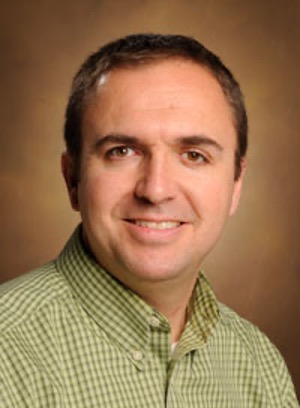
Supporting associations
Sponsored by:
© 2020 The National Institute for Innovation in Manufacturing Biopharmaceuticals. All rights reserved. This project was developed with an award from the National Institute for Innovation in Manufacturing Biopharmaceuticals (NIIMBL) and financial assistance from the U.S. Department of Commerce, National Institute of Standards and Technology (70NANB17H002).
Prices, course details, dates, and times are subject to change.
Contact us + FAQs
FAQs
View the most frequent questions asked by our learners
Financial and Military Assistance
Find out which programs are eligible for assistance
Accommodations
View our accommodation policy
